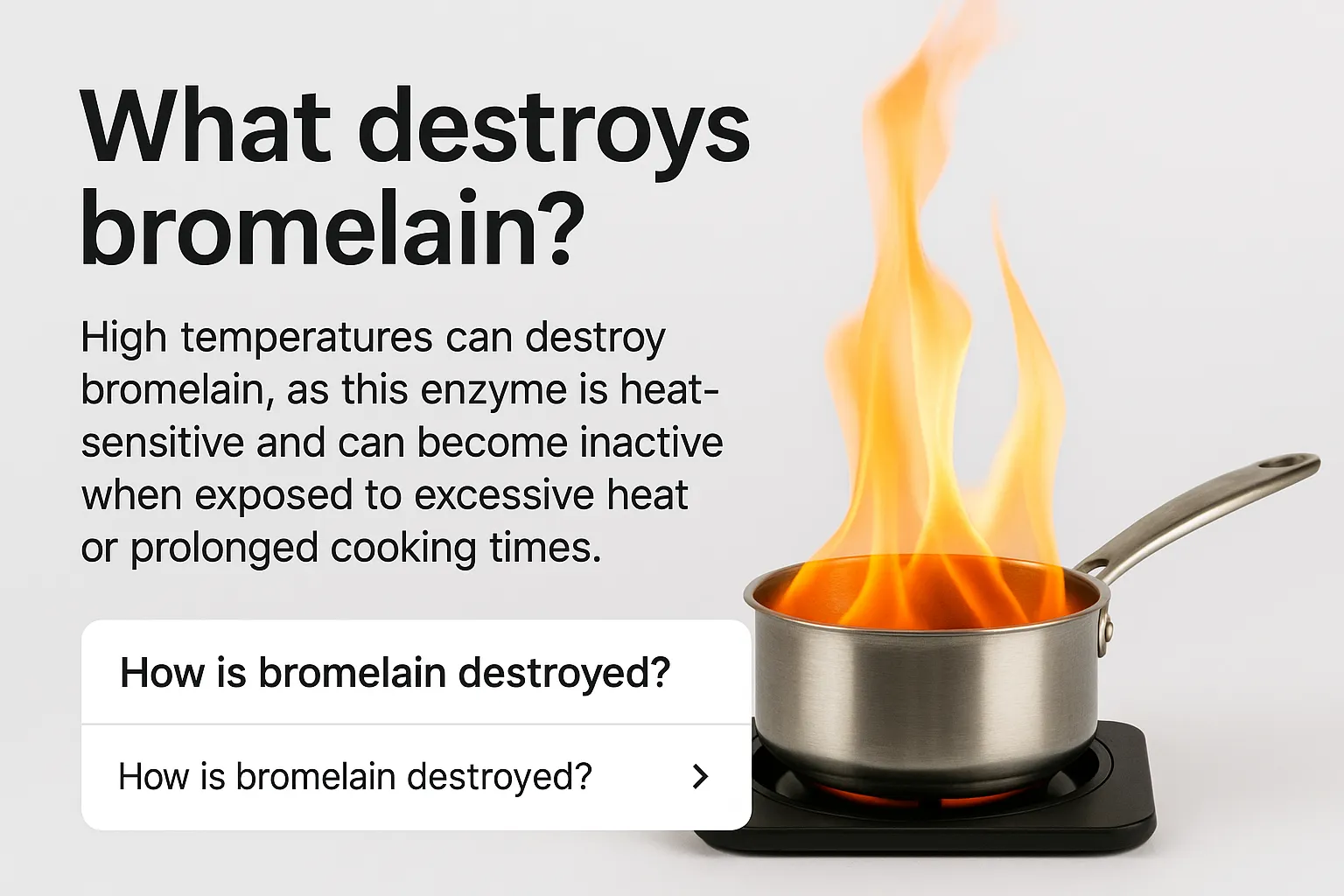What destroys bromelain?
Bromelain is a protein-digesting enzyme primarily found in pineapples. However, like most enzymes, it is sensitive to environmental factors that can destroy or deactivate it.
Main Factors That Destroy Bromelain
- Heat: Temperatures above 60°C (140°F) denature bromelain, making it inactive.
- Acidic or Alkaline pH: Extreme pH levels can damage the enzyme's structure.
- Long-Term Exposure to Oxygen: Oxidation can degrade enzyme activity over time.
- Improper Storage: Exposure to moisture and sunlight reduces potency.
- Cooking: Cooking pineapple destroys its bromelain content significantly.
How to Preserve Bromelain Activity
To ensure maximum enzymatic benefits, consume bromelain:
- From fresh pineapple (preferably raw)
- As supplements stored in a cool, dry place
- In formulations that protect against heat and pH changes
FAQ – Frequently Asked Questions
Does cooking pineapple destroy bromelain?
Yes. Heat above 60°C (140°F) denatures bromelain, eliminating its enzymatic properties.
Can bromelain survive stomach acid?
Only partially. Some bromelain can survive the acidic environment of the stomach, but enteric-coated supplements offer better absorption.
Is canned pineapple a good source of bromelain?
No. Canned pineapple is heat-processed, which destroys most or all of the bromelain it once contained.
How should I store bromelain supplements?
Store in a cool, dry place away from light and humidity to preserve enzyme stability.

